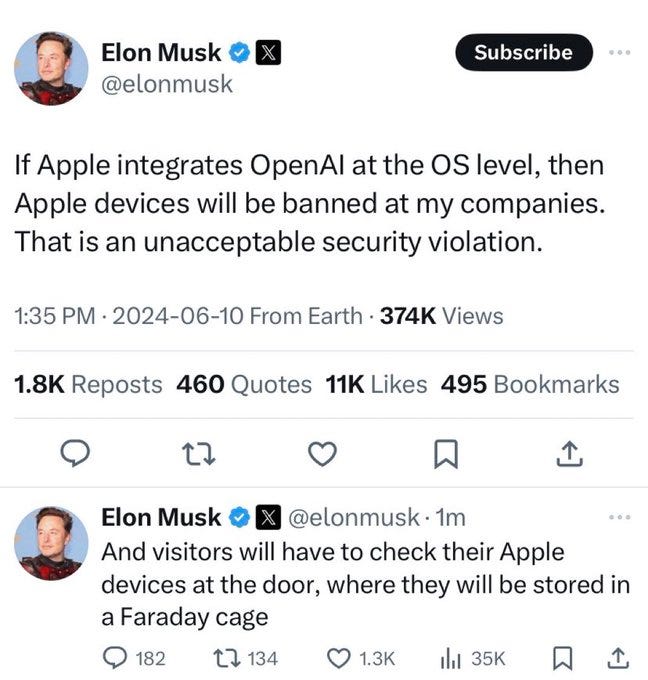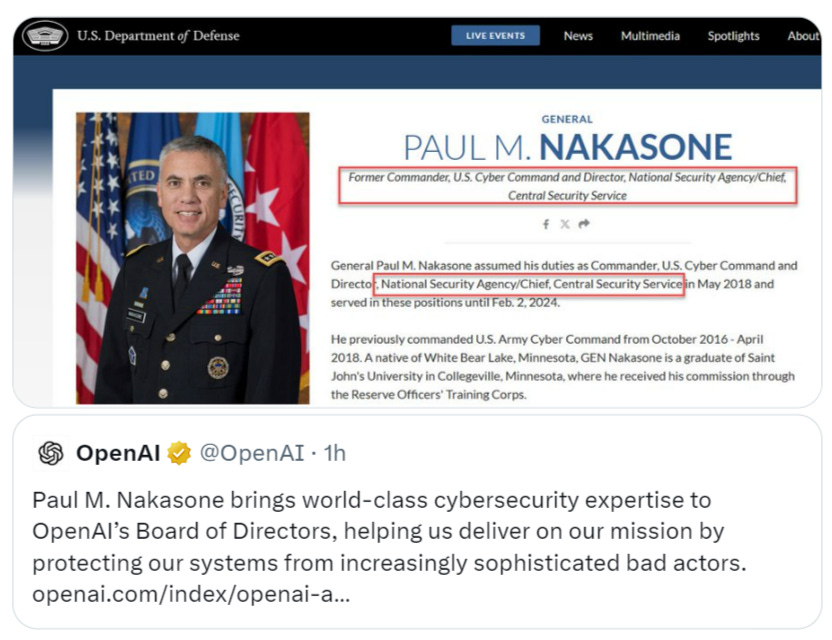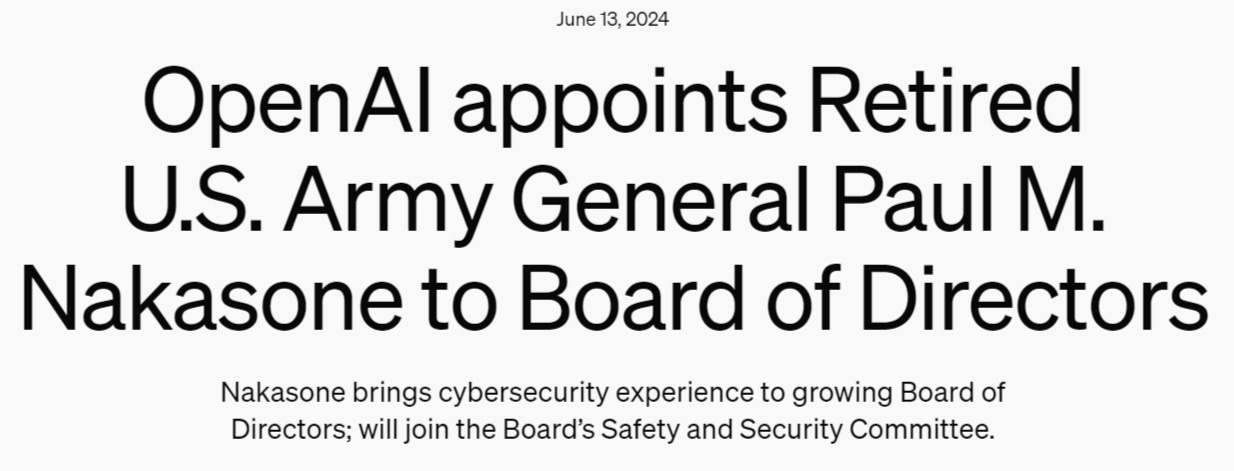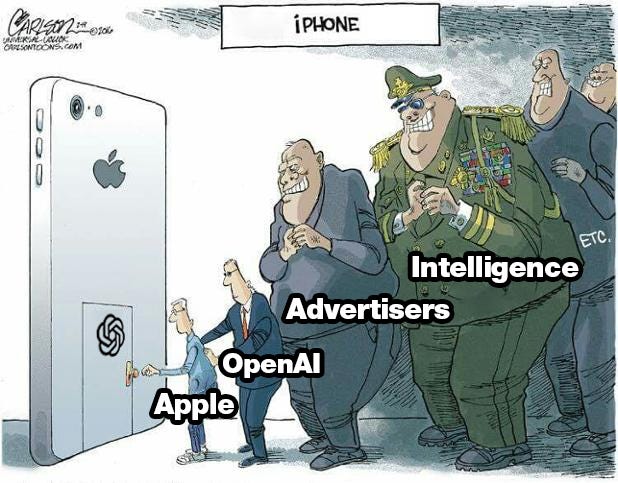Fogging the Episteme in the Quest for the unHoly Grail
One of the most epistemically dangerous phenomena of our day is the imperceptible metamorphosis of concepts we once knew, and took for granted
One of the most epistemically dangerous phenomena of our day is the imperceptible metamorphosis of concepts we once knew, and took for granted, into something entirely different, while retaining their original outward mask. This new thing now escapes our grasp because we’ve fallen into the semiotic trap of understanding a thing by its appearance or name, rather than by what it does.
We should always strive to cut through perceptual biases to understand the underlying basis of reality before us. If thousands of years ago, humans called the color of the sun red, but over the course of hundreds or thousands of years began to call it green, it would represent a lacuna of apprehension—a discontinuity in the to-then unbroken thread of epistemic cohesion which would lead to the distortion of knowledge and historical understanding. It’s akin to Giambattista Vico’s concept of the ‘barbarism of sense’ which, in the developmental cycle of civilizations, is succeeded by the ‘barbarism of reflection’:
Vico’s theory suggests that history begins in a barbarism of sense, characterized by a lack of reflection and dominated by imagination and myths. It ends in a barbarism of reflection, where over-analysis and individual interests break down the common sense and shared values established by society.
Concealed in this deliberate over-complication are the kernels of the original truth. This is the crisis we find ourselves in today when it comes to the modern concept of a corporation: what exactly is a corporation? What is its purpose, in the modern world?
Today things flow with the exponential rate of rapids tumbling down a cliff. Long ago, it took generations for an idea to change, to shift so drastically as to be unrecognizable from its earlier essence. This allowed time for us to diachronically adapt new identifying conventions after carefully observing its metamorphosis over a long period.
Now, things change so rapidly we’re often left holding the bag of previous preconceptions, unable to adapt our cognitive framework in time to keep up. This leaves us in a state of epistemic haze, then ultimately, a blind delirium. Think of vaccines and how quickly they were redefined and subsumed into gene therapy, confusing terminology, language, and understanding—and deliberately so.
The same wool is being pulled over our eyes when it comes to corporations. Companies are slowly mutating into something no longer resembling the idea ingrained in us—their original Form. Tangled in modernity’s oppressive barbarisms of reflection, we lack the clearsightedness and epistemic coherence to properly assess their new natures in a way that provides true teleological understanding.
Millennia ago, when the first local motions of what might be deemed proto-businesses had begun self-assembling in the hamlets and farmsteads of our antediluvian past, the direct functions of these basic transactional structures were clear to see and understand: they served the community around them with a sympathetic link, such that, should anything go awry, it would directly affect the business itself. There was an immediacy in the chain in the form of a feedback loop: when a proprietor served his customers directly, knowing each of their names and faces, accountability naturally sprung from this fount. Should the product or offering have brought harm, immediate reprisal could be swiftly dealt unto the proprietor by the vengeful village ‘customers’ armed with stones and clubs.
Over generations, companies began to insulate their accountability beneath a growing layer of screens. First the boss may have hired a satrap intermediary to dole out the goods while the boss tended to important clerical and administrative duties. Eventually, as the companies grew in size, it progressed to regional nodes or branches stewarded over by an impenetrable bureaucracy which shielded the owners from the negative sentiment and reprisal the company’s unethical conduct may have engendered.
We find ourselves in an age where corporations have effectively erected endlessly byzantine accountability distribution webs of administrative barriers between themselves and society, to keep their leadership totally absolved from the increasingly inhumane actions they’re required to take to stay ahead of competition. This fosters a natural progression of cutthroat immorality that’s simple to envision: Operating outside the “rules” of any system will always give advantage to the transgressing operator. Rules are established for fairness, and to protect the smaller and weaker, from allowing runaway indiscretion spurred by amoral vultures from devolving the ‘system’ into mayhem and anarchy.
The problem is a classic one: I’ve cited baseball before as an example. In the 90s, certain homerun hitters dominated the league by juicing up to the gills. In order to compete with them, other top stars had no choice but to juice themselves up—e.g. McGwire and Sosa. It encouraged a runaway ‘power creep’ where, in order to stay ahead, each side had to continually out-cheat the other to keep up with a competitor willing to spare no effort regardless of its illegality.
Cue corporations: the more accountability “screens” they fashion between themselves and their customers, the more it allows amoral and illegal behavior to go unpunished. The more this behavior goes unpunished, the more it acts as a ‘reward mechanism’ to the leadership of the company. Over time, this creates a natural feedback which attracts the increasingly immoral and psychopathic who see unfettered access to boundless advancement—and here’s the important part: they do much better than their competitors because they skirt more rules, break more eggs, operate with fewer restrictions overall. The board sees this success, and it incentivizes the recruitment of more such personalities; it’s a logical chain of consequences.
Competing companies see you succeeding and soon cotton on to the ‘secret’. They follow the lead to stay competitive, and voila: we have the selfsame ‘power creep’ described in the baseball example—with each corporation being virtually forced to become progressively more evil in order to retain their market share. Apply this model to how Google, Apple, Microsoft, the current crop of AI companies, etc., all compete with each other, and you will have a lucid framework for the last two decades of societal development which, for instance, explains why, since the inception of social media, our data has been so thoroughly and illegally exploited by BigTech.
Now in order to achieve their fabled AGI—already spun into a Rapture-like quest, of sorts—the limits have to be pushed beyond cultural guardrails and human comfort levels, spurning tradition like it were merely roadkill on the shoulder, just to eke out the last drop of advancement possible. Compute and data corpus walls are already being hit, and in their sheer zealotry the vulture capitalist technocrats will need humans themselves as vessels or hosts to breach the bottleneck. The portrait of a demented scientist feeding puppies to his little pet chimera velociraptor while toothily beaming comes to mind. To these madmen we remain only as fodder for the race of conquest pitting transhuman elites against each other. Going forward, every business and product decision will be made solely at the priority of their models and algorithms, no matter how pernicious to us, our privacy, security, or social and cultural cohesion.
These corporations are now converting our human biomass into extractive hosts for the rentier class. Blindsided, we stumble ahead under the spell of outdated conceptions, perceiving their structures with the rose-tinted paradigms of ages past: companies as units of organized production conscientiously fulfilling customer demands for fair transaction. All the while, beneath the scriggling sheaths of their cocoons, they’ve long mutated into some other monstrosity.
Companies began to globalize, uprooting themselves from the local culture and community, no longer beholden to those responsible for their early spark. Now they could operate under the illusion of serving the community while in actuality enriching themselves from the global pot, at the expense of the local nomoi. The latest trend sees companies like Apple, Adobe, and many others transition their business models into AI training farms. Their ‘products’ and apps may bear resemblance to those of the past, but it’s clear they now serve an entirely different purpose and ethos.
Adobe made waves this week with their foisting of a highly controversial new TOS onto customers, which forces them to sign away creative rights to anything they generate within the Adobe ecosystem of programs and apps.
Most have rightfully surmised the intent being the sake of training AI models to not only enable Adobe to aggressively compete with the pack, but to also potentially unlock a massive new profit stream by pimping the highly-sought-after customer data to larger AI corps.
This latest has even spurred artists to begin using ‘data-poisoning’ apps like Nightshade to sabotage AI scraping of their art:
A new tool lets artists add invisible changes to the pixels in their art before they upload it online so that if it’s scraped into an AI training set, it can cause the resulting model to break in chaotic and unpredictable ways.
The tool, called Nightshade, is intended as a way to fight back against AI companies that use artists’ work to train their models without the creator’s permission. Using it to “poison” this training data could damage future iterations of image-generating AI models, such as DALL-E, Midjourney, and Stable Diffusion, by rendering some of their outputs useless—dogs become cats, cars become cows, and so forth.
The sheer cost of training AI models has spiralled into an exorbitant bottleneck, reportedly running into the hundreds of millions to train each new iteration. These companies hungrily lust after endless corpora of data to eke out ever-more incremental boosts to their digitally-chained emergent genies. AI outfits are left with no choice but to surreptitiously partner with adjacent tech corps with access to vast pools of customer data to convert them into training farms without their knowledge in order to offset the cost of improving models.
This fact was epitomized by Apple’s latest announcement at the 2024 WWDC (Worldwide Developers Conference) of their partnership with OpenAI, whose ChatGPT system will now be pullulating throughout the latest Apple OS, controlling every aspect of the apps and tools and invigorating SIRI with a plethora of powerful new capabilities—or so the PR copy goes. The problem is, the likely purpose of the partnership includes the quid pro quo access to OpenAI for all of Apple’s vast customer base, which will give OpenAI’s models inordinate mountains of new training data—the liquid gold of current tech currencies. This comes at the cost of our privacy, as the AI will have access to every intimate detail of our personal lives through the Apple ecosystem.
It’s only natural that OpenAI has concurrently announced the hiring of the literal director of the NSA to their board, justifying the meme below:
Go paid at the $5 a month level, and we will send you both the PDF and e-Pub versions of “Government” - The Biggest Scam in History… Exposed! and a coupon code for 10% off anything in the Government-Scam.com/Store.
Go paid at the $50 a year level, and we will send you a free paperback edition of Etienne’s book “Government” - The Biggest Scam in History… Exposed! OR a 64GB Liberator flash drive if you live in the US. If you are international, we will give you a $10 credit towards shipping if you agree to pay the remainder.
Support us at the $250 Founding Member Level and get a signed high-resolution hardcover of “Government” + Liberator flash drive + Larken Rose’s The Most Dangerous Superstition + Art of Liberty Foundation Stickers delivered anywhere in the world. Our only option for signed copies besides catching Etienne @ an event.














This is why we need to return to local so that everyone is accountable to each other again. This minimizes wrongdoing by magnitudes. Also we need to need the people around us – that is how relationships are fostered and how we know who not to do business with.
It’s up to us to have our own set of standards - if only that day would come. I for one avoiding doing business with any entity where I cannot speak to an individual.
The system is based on the wrong principles - artificial scarcity which is what breeds greed. This simple fact is totally overlooked. The system is wrong from the get-go so everything built upon it will also be wrong and to our detriment. We need to be proactive and bring our needs back to local and this will give us immense strength. A beautifully-written article. Thank you!